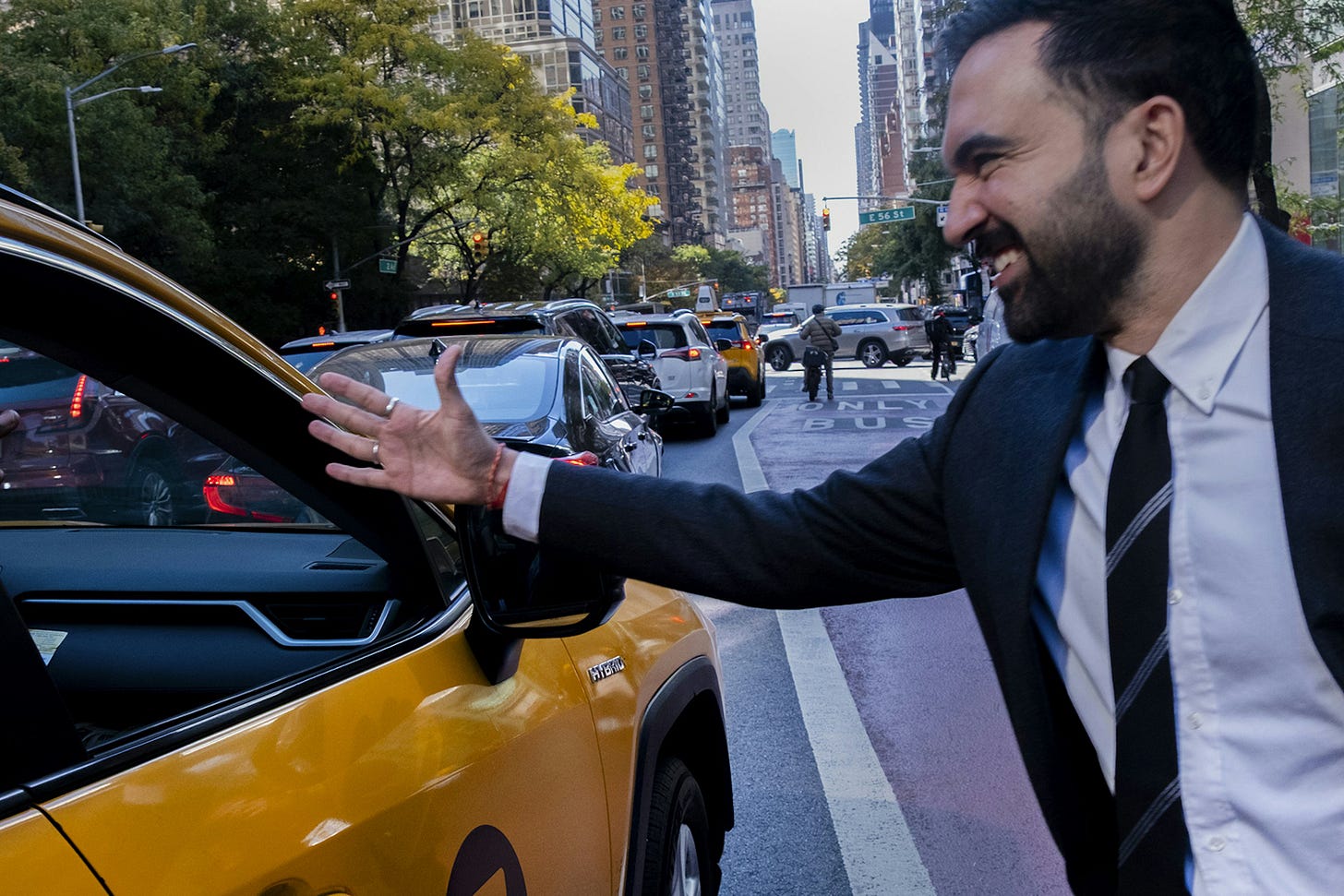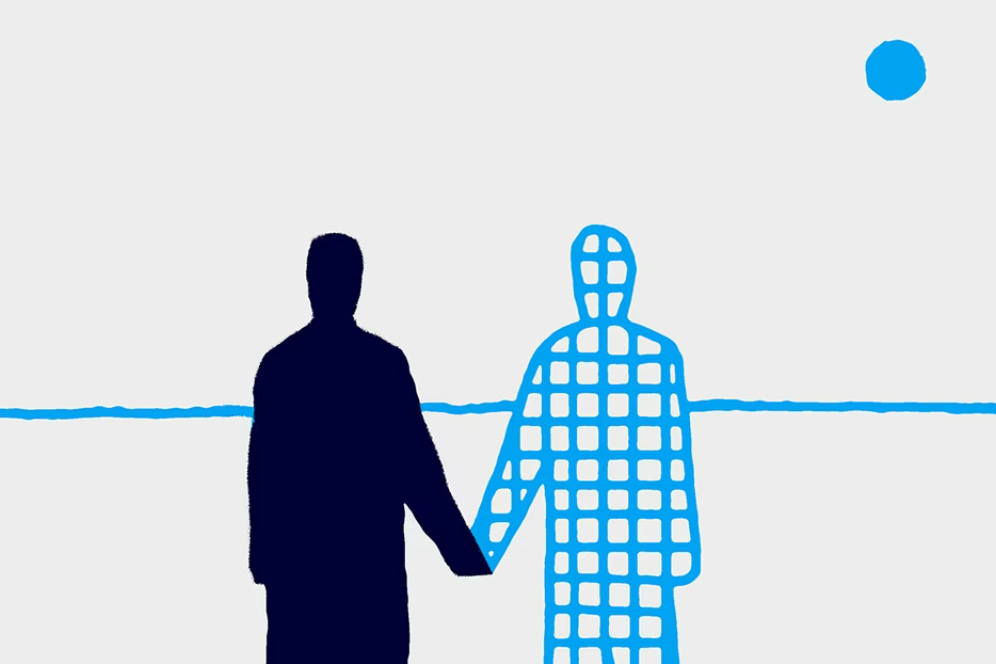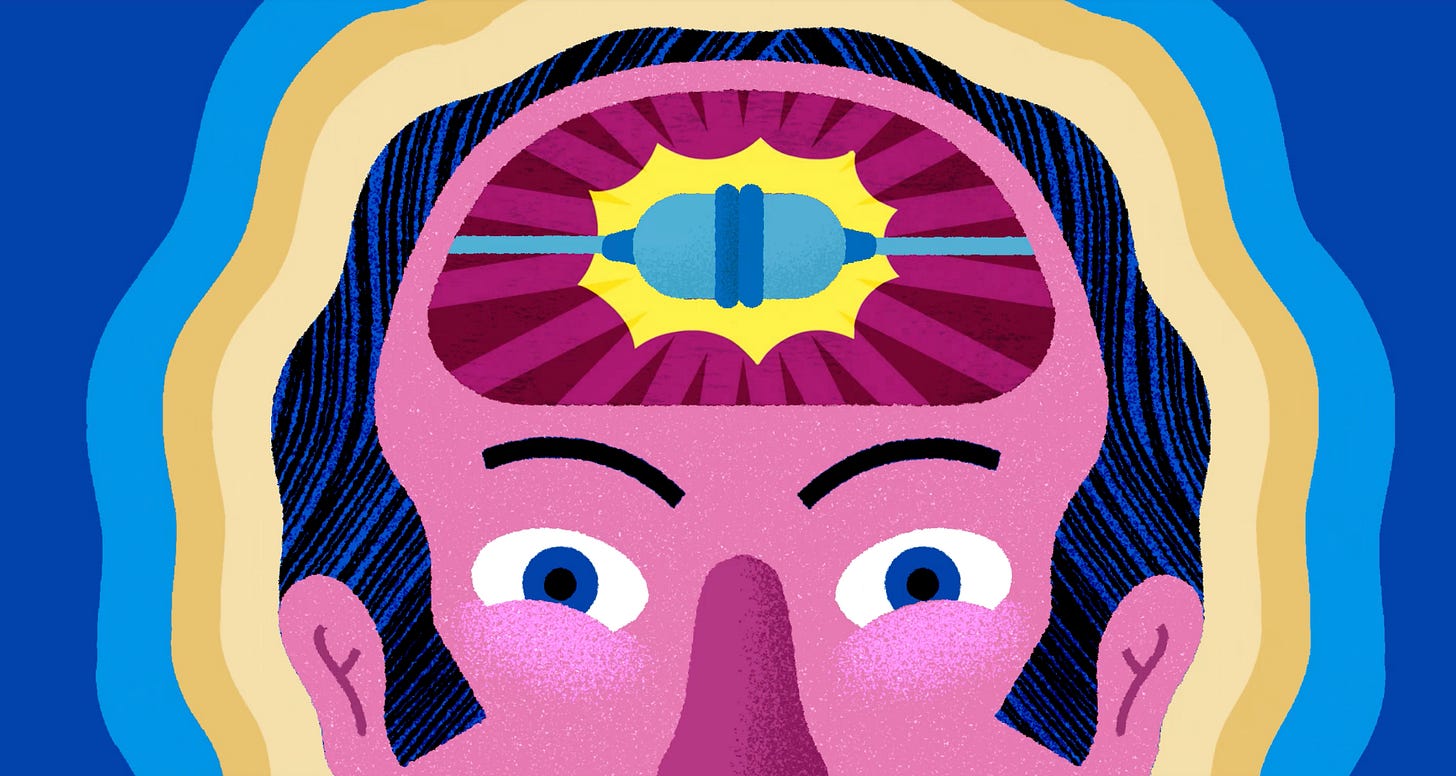Five Things: Mamdami Campaign, Dating Conservative Men, New Middle East, Anti-Social Media, Aha Moments
It's Sunday. Read this now.
Hello and welcome back to Five Things!
The last week was pretty busy and I spent two days traveling, first to Berlin and then to Cologne. It’s definetely conference season right now and I love meeting new people and reconnecting with others. Being in Cologne just for a day was a bit like homecoming as I lived there for two years 20 years ago (I lived in Bonn, but worked in Cologne) and I knew so many people at the conference. When I lived there, I never really warmed up to the place and now this has changed because Cologne is one of those cities were I can just bump into people I know on the street. The other place is Berlin Mitte, where I never lived, but constantly run into people. Still, I wouldn’t want to live in either places, thank you very much. Hamburg is by far the best place to be. Unless, of course, you need mountains near by.
Today is November 9, which is the fateful date for Germany. In 1918 the first German republic was declared on November 9 and in 1989 the border between East and West Germany opened, paving the way to reunification. Still, we cannot celebrate this day, because the atrocities of the Shoa, this singular, most awful event in human history, overshadow everything and the November 9 pogroms in 1938 were the point were the violence against jews in Germany sharply increased. So on this Sunday while we are happy about reunification, we will remember what happened in 1938 and stand together vowing to never let this happen again. Every year on November 9, people everywhere clean the stepping stones in their streets that help us remembering the people who lived in our streets until they got deported. Many candles are being lit and people lay down flowers. It’s sad and beautiful. November 9 is a tough day.
Here are this Sunday’s Five Things - enjoy!
How Zohran Mamdani Fixed the Mistakes That Cost Democrats in 2024
The Democratic Party is addicted to messaging that is carefully—and expensively—calibrated to reach a hypothetical median voter. It has a strategist problem, in other words: Politicians won’t test messages or take positions until they’ve been extensively tested by these so-called experts. Strategists produce convoluted policies, candidates who are terrified to deviate from talking points, and campaigns that are proven failures—just look at 2016, 2024, and the current makeup of the House and Senate.
Mamdani’s rise not only proves you can ignore all of that stuff and still win; it shows that you need to ignore it. Today’s candidates have to be willing to go almost anywhere and adapt their message to reach the people who are there, whether they’re talking to them for 30 seconds or three hours. Message discipline is as important as ever—you just can’t sound like you’re on Meet the Press. Conviction and authenticity matter more today than they have at any other point in American history, and voters are clearly more receptive to tangible policies they can easily grasp—like free buses—than they are to abstractions like tax credits for which they probably aren’t even eligible.
While I am appalled by his stance on Israel, I really do think that Democrats can learn a lot from his campaign. Formulating a clear stance and then standing by it no matter what is something lots of politicians shy away from, which makes them interchangeable.
Inside My Year-Long Attempt to Date Conservative Men
From May to November, I would match with a total of 60 men across a wide conservative spectrum—self-proclaimed MAGA bros, “European” guys looking for their submissive “European” dream girls, white supremacists, conspiracy theorists—although most identified in some way with the alt-right. I’d scour profiles in an effort to figure out where these men were coming from, why they seemed to oppose the things I’d previously spent a career fighting for: women’s rights, social justice, reproductive freedoms, LGBTQIA+ equality. I tried to imagine that maybe we weren’t so different, maybe there was some chaotic internet-age misunderstanding at play.
And maybe I could answer another big question, one that seemed intimidatingly complex: As politics in our country grows more divisive, as the internet fuels hard-line cultural ideologies and social discord, as like-minded communities double down on rejecting anything different, is it possible for romantic connections between contrasting groups to even exist? Could dating be a way to help forge an understanding—of value systems, of experiences that drive beliefs— that could start to bridge the dissonance? Or at the very least, could it teach me about my own rules of attraction? Could I ever be physically enticed by (or even intimate with) someone with very different political views?
What an experiment! I’m certain that I couldn’t date somebody who has MAGA beliefs. Could you?
The Fantasy of a New Middle East
Israel cannot bomb the Middle East into a stable new order. Regional leadership requires more than military primacy. It also demands some degree of consent and cooperation from other regional powers. But nobody in the Middle East wants Israeli leadership, and all states now increasingly fear its unchecked might. Some in Washington celebrate the prospect of an unrestrained Israel laying waste to U.S. adversaries. But they should be careful what they wish for. Israel’s interests are not the same as those of the United States—and Israel is writing a lot of checks that the United States might not be willing or able to cash.
Netanyahu and his right-wing extremist coalition partners have to go and then real negotiations have to happen. With him in office, there won’t be a lasting peace or a realignment in the Middle East.
The Age of Anti-Social Media Is Here
What Zuckerberg described—what is now unfolding—is the beginning of a new digital era, more actively anti-social than the last. Generative AI will automate a large number of jobs, removing people from the workplace. But it will almost certainly sap humanity from the social sphere as well. Over years of use—and product upgrades—many of us may simply slip into relationships with bots that we first used as helpers or entertainment, just as we were lulled into submission by algorithmic feeds and the glow of the smartphone screen. This seems likely to change our society at least as much as the social-media era has.
Baking AI into everything will certainly remake the way we interact online, and mostly not for the better.
How Your Brain Creates ‘Aha’ Moments and Why They Stick
Insights are not limited to geniuses: We have these cognitive experiences all the time when solving riddles or dealing with social or intellectual problems. They are distinct from analytical problem-solving, such as the process of doing formulaic algebra, in which you arrive at a solution slowly and gradually as if you’re getting warmer. Instead, insights often follow periods of confusion. You never feel as if you’re getting warmer; rather, you go from cold to hot, seemingly in an instant. Or, as the neuropsychologist Donald Hebb, known for his work building neurobiological models of learning, wrote in the 1940s, sometimes “learning occurs as a single jump, an all-or-none affair.”
Aha! Know I know. And love it, when it happens. All of a sudden you’re stepping out of the darkness and you can see clearly. So wonderful.
That’s it. Have a great Sunday! If you missed last Sunday’s edition of Five Things, have a look here:
— Nico








